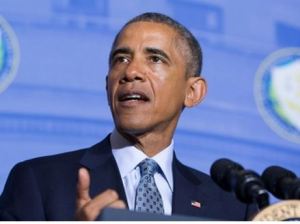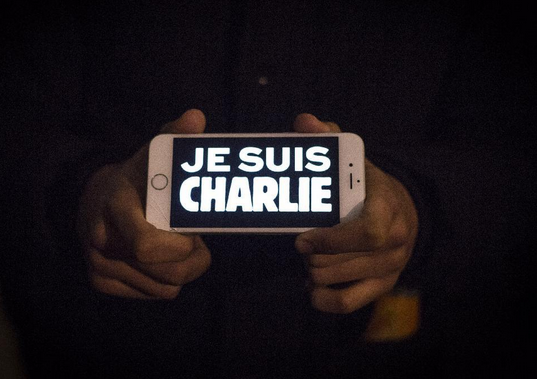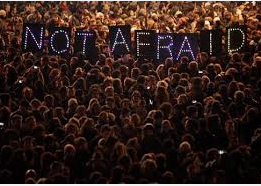You own your own security. Bottom-line, when it comes down to planning how to protect yourself and what is yours, that decision should belong to you. But that’s not what President Obama, UK Prime Minister David Cameron or French Prime Minister Hollande would have you believe after their exchange of inflammatory rhetoric last week. If these three global leaders have their way, rather than securing our freedoms in the face of terrorism, they’ll be restricting the safeguards we need in place, and opening the cyber backdoor to those threats they fear most.
It appears fear fuelled knee-jerk reactions following the horrific terror attacks in France. French PM Hollande called for tighter surveillance measures to potentially weaken and cripple encryption in France. That encouraged UK Prime Minister David Cameron to say he’d like to ban certain forms of encryption, impacting popular messaging apps like iMessage and WhatsApp. You can read this post by Cory Doctorow to get a shopping list of what they want to limit http://boingboing.net/2015/01/13/what-david-cameron-just-propos.html. US President Obama’s new Internet security proviso followed hard on the heels of Cameron’s call to outlaw encryption. Instead, they want to build “backdoors” into applications, that would allow government officials to have the ability to read all media and messages, and effectively give the state far more access and control over everyone else. But as Cory so aptly points out “there’s no back door that only lets good guys go through it.”
When Obama delivers his State of The Union address on January 20th, he’s going to make his case against encryption, and against the people in InfoSec who watch our backdoors constantly, identifying and tracking down threats from around the world. There is a lot of money being made by people who can breach security, acquire our personal data, and sell it to the highest bidder. The stakes are much higher when it comes to securing our critical infrastructure: power, water, communications, defense. We have clear proof that those systems have already been targeted and penetrated. Those systems are vital to our way of life, and deserve the best protection we can offer.
Rob Graham has written an excellent response to this in his blog, Errata Security, and he levels this warning: “The most important innovators this law would affect are the cybersecurity professionals that protect the Internet. If you cared about things such as “national security” and “cyberterrorism”, then this should be your biggest fear…This creates an open-door for nation-state hackers and the real cybercriminals.” http://blog.erratasec.com/2015/01/obams-war-on-hackers.html#.VL1RgkfF_p6.
Call me crazy, but I think we should listen to those who know a lot more then the rest of us think we do. Misguided Security warns “once this Pandora’s Box is opened, it’s going to be damn hard to shut and the talented people who do great research and help protect the public from people and organizations that are truly scary”. http://misguidedsecurity.blogspot.ca/2015/01/wi-fight.html Encryption keeps data safe, keeps identities safe, whereas backdoors and uninvited surveillance create risk.
These guys aren’t the hackers – they’re the ones that protect us from them. Yet the term is dangerously misunderstood. Rob Graham explains “Because of our knowledge, we do innocent things that look to outsiders like “hacking”. Protecting computers often means attacking them.” There’s a diligent army of highly skilled folks working on our behalf out there, scrutinizing infinite lines of code to catch what we don’t want to have. They share what they learn in real time, a collaborative, co-operative and highly effective network. Given the opportunity, we really should be listening to them.
Thanks to the folks in InfoSec and the tools they use daily, I’ve watched botnets being launched by attackers from China. To see what is coming at us in real time just click on this link to a map by Norse http://map.ipviking.com/
We need the freedom to innovate and explore technology so that it will serve us better. As Rob Graham points out, “Internet innovation happens by trying things first then asking for permission later. Obama’s law will change that. ” How can we defend ourselves if we handcuff those who do? There’s currently a movement afoot within the InfoSec community to spread the word and explain the real value of encryption so that everybody understands they have a stake in this. (I admit, I may be owning one of these shirts myself).
Currently, this seems to be couched as a “tech” issue, with the political pundits throwing words around like “cyber”, “encryption” and “hacker”, terms that can easily be used in a campaign of fear-mongering by government policy makers to assume control. The assumption is that the average person will probably stop listening because they consider this out of their realm, so it doesn’t apply to them. But that couldn’t be further from the truth. This argument is not just about technology anymore. It challenges current standards of freedom and privacy, and within that, how we get to protect ourselves. And everything we hold dear. Isn’t that our decision to make?
Thanks for reading!
Cheryl Biswas













